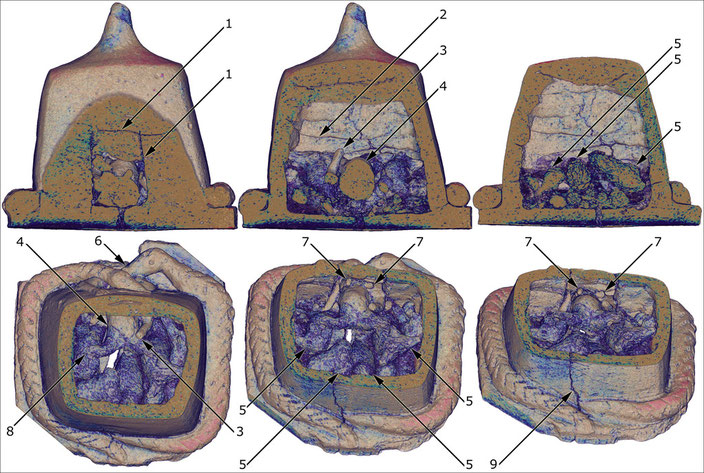Djenne Shrine

The radiological study of this hollow terracotta suggests that the structure was filled with headless figures/masses before the door was sealed.
Video CT scan : 3D half opaque VRT view with an oblique clipping plane
Indeed the CT scan reveals eight headless elongated masses (5) lying side by side inside the shrine, one of them in the shape of a 113-mm-long pregnant female figure (4) placed just inside the door (1), with her right arm emerging on the outside; she is a birthing posture (8) with her left arm lifted at her side (3).
The two serpents’ heads meet at the door, the lower one (6) placed where the figure’s head should be ; the upper one hiding her breast
(7).
The base of the shrine is divided by a thick crack at the back (9).
The headless pregnant figure and elongated masses are surrounded by low-density sediment.
As noted by Kristina Van Dyke, the former assistant curator for collections at The Menil Collection, Houston, the scene depicted here may partly resonate with
the oral story of Bida (Wagadugu).
For more info about this piece from the NOMA, click here


